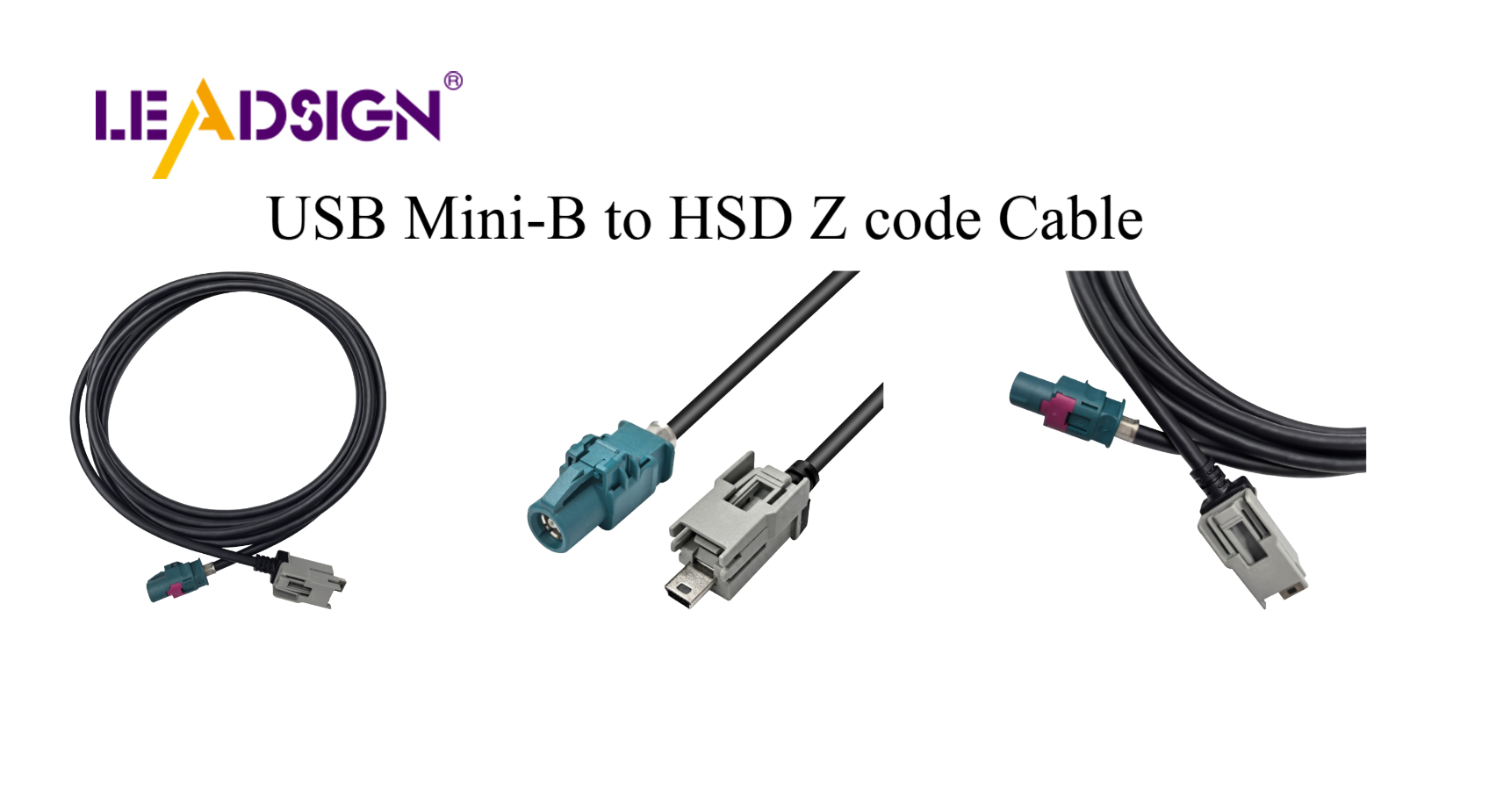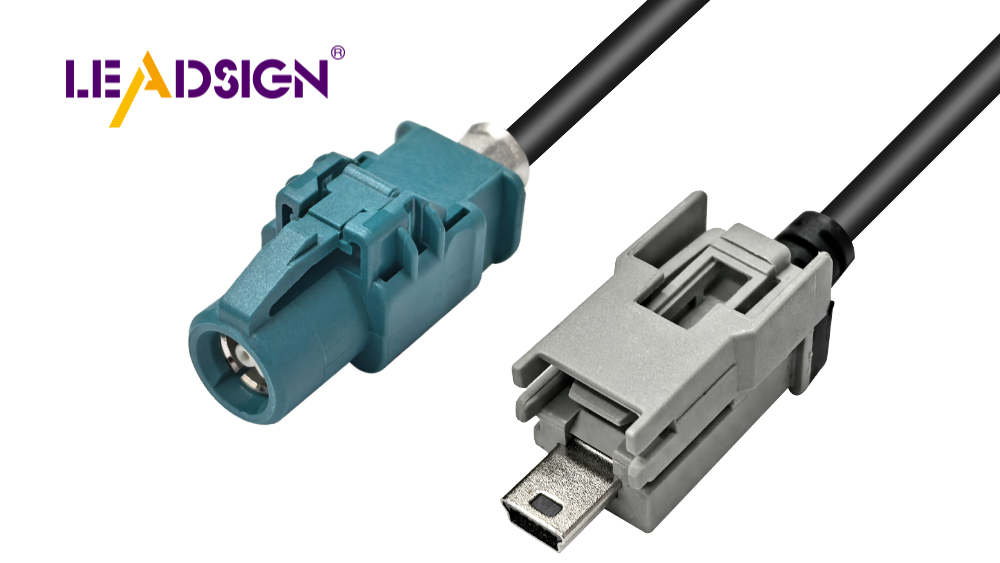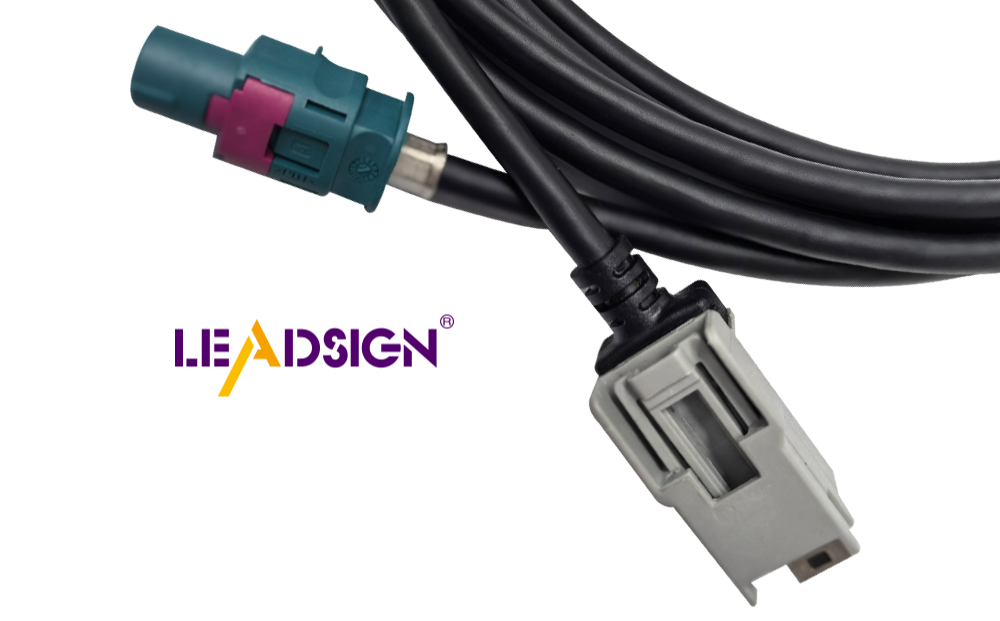Next-Generation Automotive Plugs and Connectors for Smart Vehicles

Vehicle connectors are very important in today's vehicles. They help parts like sensors and controls communicate with each other. With the rise of electric cars, these connectors are essential for high power systems. Electric vehicles have driven improvements in connector designs. These designs support features like smart car systems and self-driving technology. New vehicle connectors are key for eco-friendly cars and green travel.
Key Takeaways
Next-generation automotive connectors are crucial for enhancing communication between vehicle components, especially in electric and smart vehicles.
Miniaturization of connectors leads to lighter cars, improving fuel efficiency and reducing environmental impact.
High-speed data transfer capabilities in connectors enable seamless communication for advanced features like V2X technology and ADAS.
Durability and reliability of connectors are essential for maintaining vehicle performance in harsh conditions, reducing long-term repair costs.
Wireless connectivity is revolutionizing automotive connectors, allowing for easier updates and reducing the need for physical wiring.
The growth of electric vehicles is driving demand for specialized connectors that can handle high-voltage systems safely and efficiently.
Adopting eco-friendly materials in connector manufacturing supports sustainability and aligns with the growing trend towards greener automotive technologies.
Key Features of Next-Generation Vehicle Connectors

Miniaturization and Compact Design
Car technology is improving quickly, needing smaller, better parts. Making automotive connectors smaller helps meet this need. Tiny connectors make cars lighter, saving fuel and cutting pollution. This matches the goal of making greener, cleaner cars.
Small designs also free up space in cars. This lets makers add more features without losing quality. New materials and methods keep new connector models working well, even when tiny. These small connectors help build better enhanced vehicle electronics, keeping cars smart and efficient.
High-Speed Data Transfer Capabilities
Modern cars use lots of data for maps, music, and safety. High-speed connectors are needed to send this data fast and safely. They help car systems talk to each other smoothly.
Vehicle-to-everything (V2X) tech needs even faster data sharing. Automotive low voltage connectors now handle more data with better signals. These advanced connectors make driving easier and more fun.
Enhanced Durability and Reliability
Strong and reliable electrical connections in vehicles are very important. Car parts face heat, shaking, and wet conditions. Makers use tough materials and smart designs to make automotive connectors last longer.
Good connectors lower repair costs and work well for years. Strong locks and cables stop them from coming loose. Durable connectors keep your car running well, even in tough weather.
Technological Advancements in Automotive Connectors

Wireless Connectivity and Smart Connectors
Wireless tech is changing how cars work today. Many car functions no longer need wires. Smart connectors let car parts talk to each other easily. They allow wireless charging and software updates without plugging in. This makes driving simpler and more convenient.
Self-driving cars need more automotive connectors with wireless features. These connectors help sensors, cameras, and controls share data reliably. Using wireless tech, smart connectors make cars work better and smarter. They also reduce wiring, improving how the whole system works.
High-Voltage Systems for Electric Vehicle Technology
Electric cars use high-voltage systems to power their engines and batteries. These systems need special automotive connectors to handle strong electric currents safely. These connectors move energy efficiently while keeping everything safe. Strong materials and smart designs make them last longer.
High-voltage connectors are also key for fast-charging stations. They help electric cars charge quickly, saving drivers time. As more people use electric cars, better high-voltage connectors are needed. These connectors help make travel greener and cut pollution.
Integration with IoT and Vehicle-to-Everything (V2X) Communication
IoT and Vehicle-to-Everything (V2X) tech are changing cars. Automotive connectors now send data fast, letting cars talk to roads and other cars. This helps cars avoid accidents and stay safe.
Connected cars use automotive connectors to manage data from sensors and devices. These connectors link car systems to outside networks smoothly. Thanks to technological advancements, you get smart maps, easy repairs, and fun entertainment.
IoT and V2X tech also help build smart cities. Cars can talk to traffic lights and roads using automotive connectors. This reduces traffic jams and makes driving safer and easier. These changes make your trips smarter and more enjoyable.
Market Trends and Growth Drivers in Automotive Connectors
Electric Vehicle (EV) Growth Impact
More people are buying electric cars today. This increases the need for better car connectors. These connectors help move energy between batteries and motors. They also make charging faster and safer for drivers.
Electric cars need strong connectors for high-voltage systems. This has led to new ideas for making better connectors. Companies now focus on creating durable and efficient designs. As electric cars become popular, the connector market grows. By using these technologies, you help protect the planet.
Advanced Driver Assistance Systems (ADAS) Use
ADAS technology is changing how cars work. Features like lane-keeping and cruise control need good connectors. These connectors help sensors and cameras share data smoothly. This makes cars safer and easier to use.
The need for fast data transfer has grown with ADAS. Better connectors are now required for these systems to work well. As ADAS becomes common, demand for advanced connectors will rise. Investing in these technologies improves your driving experience.
Eco-Friendly Materials in New Vehicle Connectors
New energy cars are pushing for greener practices. Makers now use eco-friendly materials for car connectors. These materials are strong and better for the environment.
The connector market now makes lightweight and rust-free designs. These changes help cars use less energy and cut pollution. Choosing cars with these connectors supports a cleaner world.
Asia-Pacific leads the connector market in size and growth. North America is growing fast with new technology. These trends show how important connectors are for future transportation.
Challenges and Future Directions for Automotive Connectors
Supply Chain and Manufacturing Challenges
The need for automotive connectors keeps growing every year. But making enough connectors is not easy for companies. Problems in the supply chain can delay getting important parts. These delays slow down making and delivering connectors, affecting car production.
Making connectors needs special materials and careful designs. Modular designs make connectors work with many systems. But modularization also makes production harder and more expensive. To fix these issues, companies are using machines and local factories. This helps make connectors faster and easier.
Regulatory Compliance and Standardization
Rules are very important for the automotive connector market. Every connector must follow strict safety and eco-friendly rules. For example, ISO 8092-2005 sets global rules for connectors. RoHS stops harmful materials in electronic parts. These rules make cars safer and better.
Having the same rules everywhere is also important. But different places like the U.S., Europe, and Japan have their own rules. This makes it hard for companies to make connectors for all markets. They spend more time and money to meet these rules. Still, efforts are being made to create shared rules for all regions.
Innovations on the Horizon for Vehicle Connectors
The future of automotive connectors is exciting with new ideas coming up. Companies are trying new materials to make connectors stronger and safer. Lightweight and rust-proof materials help connectors last longer in tough conditions.
Wireless tech is also improving connectors. Smart connectors now need fewer wires, making cars simpler. These changes make it easier to fix or upgrade car parts.
New ideas are also helping with faster data sharing and saving energy. As electric and self-driving cars grow, connectors must handle more power and speed. These new connectors will help make cars smarter and better.
Car connectors are changing how future smart cars work. They help parts share information, move energy, and add new features. As cars improve, new ideas are needed to solve problems. These include faster data sharing, smaller designs, and eco-friendly solutions. Using better connectors helps make travel safer, smarter, and greener. Teamwork between makers, designers, and leaders will push progress. This ensures future cars meet the needs of people and the planet.
FAQ
What are the future trends for automotive connectors?
Automotive connectors will keep improving in many exciting ways. They will become smarter, faster, and better for electric cars. Smaller and lighter designs will make vehicles more efficient. Standardized designs will make production easier and parts more compatible. Eco-friendly materials will also be used to protect the environment. These changes will help connectors work well in modern cars.
What problems do automotive connectors face today?
Modern cars use many electronic systems, making connectors harder to design. Connectors must handle power and data while staying small and strong. They need to work well with many systems, which is tough. Makers also have to follow strict safety and eco rules. Solving these problems needs smart designs and new ideas.
How do connectors help electric vehicles (EVs)?
Connectors are very important for electric cars. They safely move energy between batteries, motors, and chargers. Special connectors allow fast charging, saving time at stations. They also help with features like energy-saving brakes. These connectors make electric cars easier and better to use.
Why is making connectors smaller important?
Smaller connectors fit into tight spaces in modern cars. They make cars lighter, which saves fuel and cuts pollution. Tiny connectors also leave room for more features. This makes cars better without losing quality or performance.
How do connectors help advanced driver systems (ADAS)?
ADAS uses sensors and cameras to make driving safer. Connectors let these parts share data quickly and reliably. They help with features like lane-keeping and crash prevention. By supporting ADAS, connectors make driving easier and safer.
How do eco-friendly materials help connectors?
Eco-friendly materials make connectors better for the planet. These materials are light and don’t rust, improving car performance. Using them helps reduce pollution and saves resources. Choosing cars with these connectors supports a cleaner world.
What new ideas are shaping connectors?
Wireless tech is making connectors need fewer wires. Smart connectors can check themselves and get updates remotely. New materials make them last longer and work better. These ideas help connectors meet the needs of electric and self-driving cars.
How do connectors support V2X communication?
Connectors help cars share data with roads, cars, and people. This improves traffic flow and reduces accidents. V2X tech makes driving safer and more fun. It’s also important for building smart cities in the future.
Why is standardization important for connectors?
Standardization makes sure connectors are safe and work everywhere. It helps companies make parts faster and cheaper. Standardized connectors fit many systems, making them more useful. This benefits both car makers and drivers.
How do connectors make cars more reliable?
Connectors are built to handle heat, shaking, and water. Strong materials and locks keep them working for a long time. Reliable connectors lower repair costs and keep cars running well. They work even in tough conditions.
See Also
Enhancing Automotive Data Flow With Innovative Connectors And Cables
Maximizing Efficiency: The Role Of FAKRA-Mini Connectors In Cars
Boosting Data Transfer: Why High-Speed Connectors Matter In Vehicles
Transforming Vehicle Connectivity With The Benefits Of HFM Connectors
The Benefits Of FAKRA-Mini Connectors For High-Speed Automotive Applications

